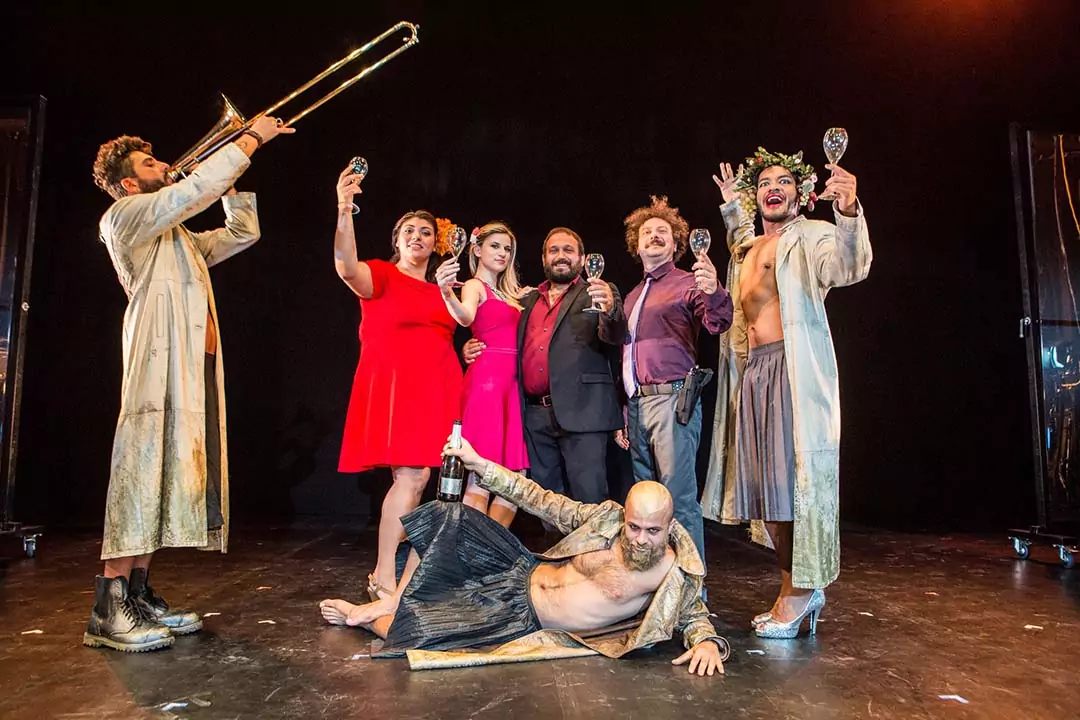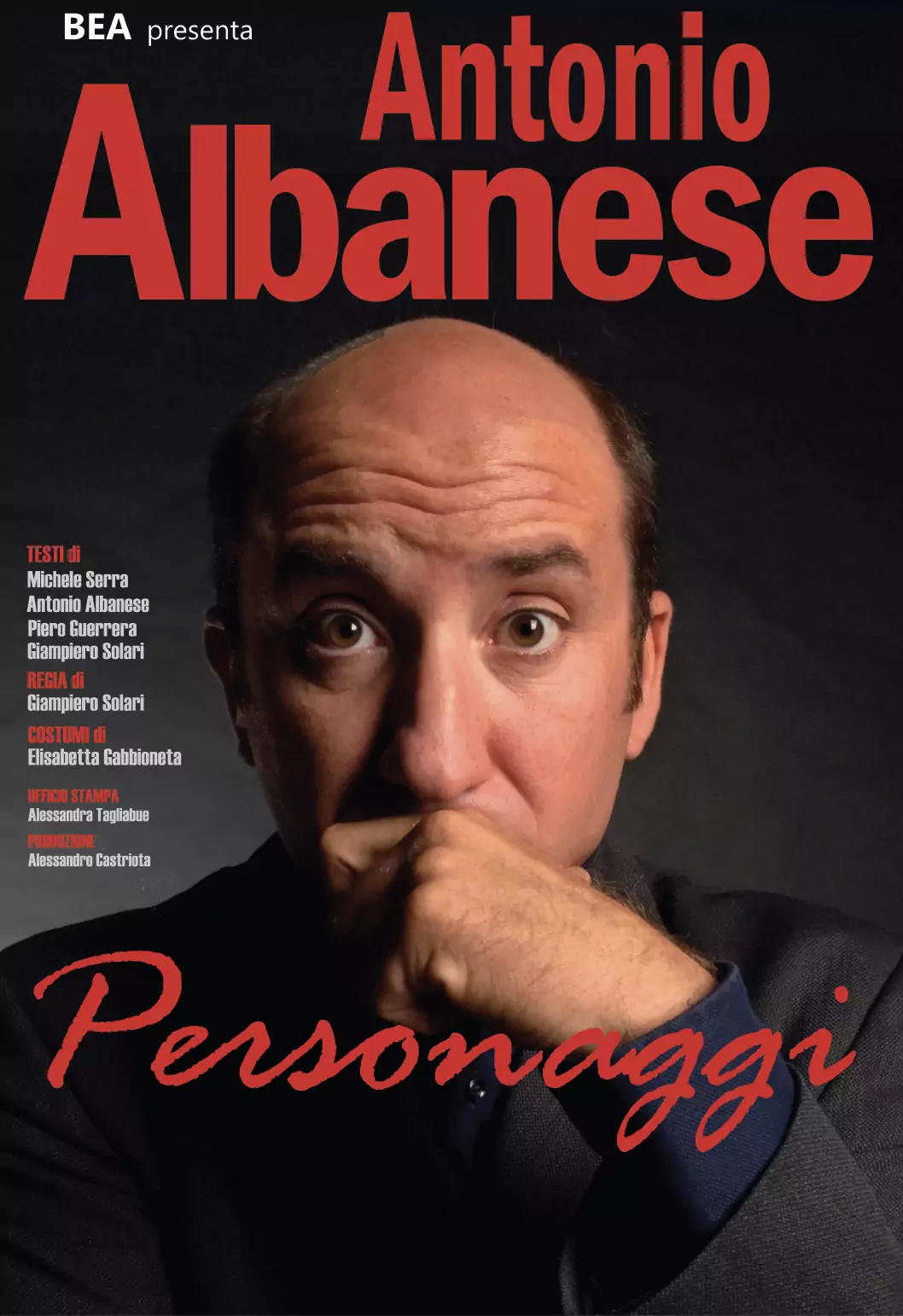Anfitrione
Teatro SocialeWho am I if I am not me? When I look at my equal, I see my appearance, such and such, there is nothing more like me! Am I what I have always been? Where did I die? Where have I lost my self? Can my me be that I have left it? That I have forgotten myself? Who is more wretched than I am? No one recognizes me anymore and everyone sneers at me at will. I no longer know who I am! These are some of the questions that haunt both the protagonists of Amphitryon, written by Plautus more than 2,000 years ago, and many of us today. Doubles, the construction of a fictitious identity, the theft of the self, the loss of being guaranteed a social role, are the themes that Plautus delivers to us in a new form, which he calls tragicomedy, because the events concern gods, masters and slaves. In it, the supreme Jupiter, after transforming himself into the most varied animal, vegetable and natural forms, decides, for the first time, to disguise himself as a man. He takes on the guise of Amphitryon, away from home, in order to mate with his wife, the beautiful Alcmena, and beget with her the demigod Hercules. Jupiter-Anhitrion during the love night, as long as three nights, told Alcmena, as if he had personally experienced them, episodes from Amphitrion's journey. During the telling, the god experienced, for the first time, a hilarity that he then took care to leave as a gift to men. "Having abandoned the realm of metamorphosis, one entered that of counterfeit" Incipit Comoedia (R. Calasso). "Open your eyes spectators, it is worth it: Jupiter and Mercury do the comedy here" (Plautus). From that moment on in the plays the comic and the tremendous would coexist and mirror our mortal and imperfect lives. After Plautus so many rewrote Amphitryon and each did so trying to listen to the urges and anxieties of their own time. I have tried to do so myself. Teresa Ludovico Playbill dramaturgy and direction Teresa Ludovico with Michele Cipriani, Irene Grasso, Demi Licata, Alessandro Lussiana, Michele Schiano di Cola, Giovanni Serratore music by Michele Jamil Marzella performed live by Francesco Ludovico stage space and lighting Vincent Longuemare choreographer Elisabetta Di Terlizzi costumes Teresa Ludovico and Cristina Bari literary collaboration Lucia Pasetti production Teatri di Bari Duration 1 hour and 30 minutes without intermission
Anfitrione
Teatro SocialeWho am I if I am not me? When I look at my equal, I see my appearance, such and such, there is nothing more like me! Am I what I have always been? Where did I die? Where have I lost my self? Can my me be that I have left it? That I have forgotten myself? Who is more wretched than I am? No one recognizes me anymore and everyone sneers at me at will. I no longer know who I am! These are some of the questions that haunt both the protagonists of Amphitryon, written by Plautus more than 2,000 years ago, and many of us today. Doubles, the construction of a fictitious identity, the theft of the self, the loss of being guaranteed a social role, are the themes that Plautus delivers to us in a new form, which he calls tragicomedy, because the events concern gods, masters and slaves. In it, the supreme Jupiter, after transforming himself into the most varied animal, vegetable and natural forms, decides, for the first time, to disguise himself as a man. He takes on the guise of Amphitryon, away from home, in order to mate with his wife, the beautiful Alcmena, and beget with her the demigod Hercules. Jupiter-Anhitrion during the love night, as long as three nights, told Alcmena, as if he had personally experienced them, episodes from Amphitrion's journey. During the telling, the god experienced, for the first time, a hilarity that he then took care to leave as a gift to men. "Having abandoned the realm of metamorphosis, one entered that of counterfeit" Incipit Comoedia (R. Calasso). "Open your eyes spectators, it is worth it: Jupiter and Mercury do the comedy here" (Plautus). From that moment on in the plays the comic and the tremendous would coexist and mirror our mortal and imperfect lives. After Plautus so many rewrote Amphitryon and each did so trying to listen to the urges and anxieties of their own time. I have tried to do so myself. Teresa Ludovico Playbill dramaturgy and direction Teresa Ludovico with Michele Cipriani, Irene Grasso, Demi Licata, Alessandro Lussiana, Michele Schiano di Cola, Giovanni Serratore music by Michele Jamil Marzella performed live by Francesco Ludovico stage space and lighting Vincent Longuemare choreographer Elisabetta Di Terlizzi costumes Teresa Ludovico and Cristina Bari literary collaboration Lucia Pasetti production Teatri di Bari Duration 1 hour and 30 minutes without intermission
Antonio Albanese in “Personaggi”
Teatro DonizettiThe show Characters over time is enriched by the new masks created by Antonio Albanese, becoming the summa of his theatrical shows. What do the thousand faces with which Antonio Albanese tells the present have in common? Humanity. Reality becomes theater through Epifanio, L'Ottimista, il Sommelier, Cetto La Qualunque, Alex Drastico and Perego, masks and at the same time prototypes of our society, familiar faces that can be found in the neighbor, in the best friend, in ourselves. The show Personaggi brings together some of the faces created by Antonio Albanese: from the immigrant who cannot fit in in the North, to the entrepreneur who works 16 hours a day, from the sommelier seraphic in decanting wine, to the less than honest political candidate, from the visionary Ottimista "inhabitant of a perfect world" to the tender Epifanio and his international dreams. Characters precisely that we have come to know and love over the years, where neurosis, alienation, soliloquy in human relationships and the emotional breakdown of the family, mindless optimism and ideological emptiness help weave the plot written by Michele Serra and Antonio Albanese. On stage are men from the South and the North, men tall and short, fat and thin, rich and poor, optimists and qualunquists. Irreverent and grotesque masks mirror a reality looked at with a keen eye to catch its flaws, habits and tics. A gallery of anti-heroes revealing a world of obsessions, fears, delusions of omnipotence and shortcuts, but where in the end even poetry finds a place. A recital that narrates, with corrosive comedy and tight rhythm, a world populated by characters typical of our time, contemporary thinking interpreted with disruptive physicality. "I would like everyone to feel a little less lonely after one of my shows, a little more cheerful, a little stronger, I would like to embrace them all. Laughter is an embrace, a need that will always be there." Antonio Albanese Playbill texts Antonio Albanese, Michele Serra, Piero Guerrera, Giampiero Solari direction Giampiero Solari costumes Elisabetta Gabbioneta production Alessandro Castriota


